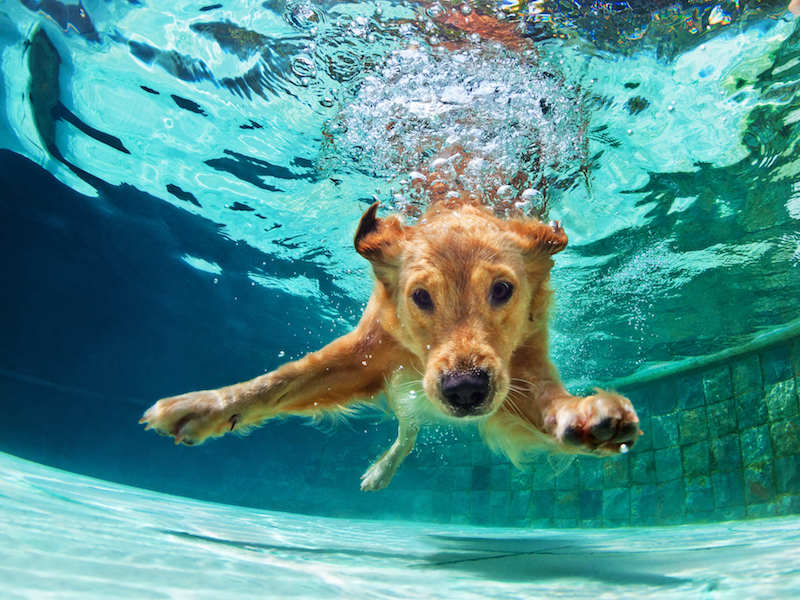
There are a lot of different things that can damage the delicate technology that makes a hearing aid work the way it does, but few have the impact of water. In fact, you could call moisture kryptonite for hearing aids. Even if you already know that and take care to protect your investment from the shower, pool or a good face washing, chances are you are missing the most common cause of water damage in hearing aids: humidity.
Moisture that you can’t see has the highest chance of causing irreparable damage. It’s time to learn more about why humidity is a bad thing for hearing aids.
Let’s Talk About Humidity
Humidity is a word that gets bounced around a lot, especially during the summer months, but what does it mean? PBS describes humidity as water molecules in the air. When presented as a percentage, for example, the relative humidity is 40 percent today, it refers to the amount of water vapor in the air compared to what air could hold. The higher the percentage, the wetter everything feels.
Humans are very sensitive to humidity because sweat is the most efficient way to cool the body. When you sweat, it evaporates into the air, but that doesn’t happen as quickly when the humidity level is high. Electronics are also susceptible to humidity, and that is why it has such a detrimental effect on hearing aids.
Why Electronics Have a Problem with Humidity
Oddly enough, electronic devices are not just sensitive to high humidity, but low levels as well. When water vapor percentages are high, condensation can collect on the intricate mechanisms that make electronics work and low humidity can lead to brittle core materials.
Hearing aids rely heavily on internal electronics to function. Modern digital hearing aids use a sophisticated signal processing chip to control noise. It’s what is behind elegant features like:
- Noise reduction
- Anti-feedback
- Targeted listening programs
- Digital sound streaming
Moisture can collect inside the hearing aid when humidity is high and damage that component. It can corrode elements inside the casing and ruin batteries, as well. You might as well drop your hearing aid in a sink full of water, and the effect is the same.
Controlling Humidity
If you are shopping for hearing aids, look for products that are water-resistant. Having this feature doesn’t mean you can swim with your hearing aids in place, but it does offer some protection against humidity and other weather-related issues like getting caught in an unexpected rain storm or even sweat when you exercise.
If you live in an area prone to high humidity, consider using a room or house dehumidifier to reduce water vapor indoors. It’s an investment that will benefit you and your family in many ways and protect other electronic devices like that expensive TV you got for Christmas. Dehumidifiers reduce the risk of mold, mildew and dust mites, so everyone breathes a little better, too. Although a house or room dehumidifier will help protect your hearing aids, it’s not enough. You will need to take other steps at the same time.
Consider buying a dehumidifier designed especially for hearing aids. There is one out there for every budget. Drying kits rely on silica gel crystals to protect the electronics. You put the device in the dehumidifier for a couple of hours to eliminate moisture. There are also storage containers that dry hearing aids out each night as you sleep. In a pinch, you could use a bag of uncooked rice to remove moisture.
Get in the habit of opening the battery compartment every time you store your hearing aids. By pulling that door open before you put the hearing aid down, you expose the batteries and other elements to the air, allowing any condensation built up to evaporate naturally. Do this all year round, not just in the summer months.
Always store your hearing aids in a cool, dry place. Avoid putting them in the glove compartment, in a hot room or on a table in the sun.
Thinking Beyond Humidity
Air vapor is not the only moisture that can damage hearing aids. Take precautions to protect them from other kinds of wet such as:
- Make sure all lotion or sunscreen is fully absorbed before touching your hearing aids or putting them in your ears.
- Find a safe place to store your hearing aids if headed for the pool or beach.
- Wear a sweatband when exercising. It’s a good practice whether you wear your hearing aids when you workout or not. Sweat in your ears can cause problems later.
- Check surfaces before you put your hearing aid down. You don’t want to place it in a wet spot left by a glass or coffee cup.
Your hearing aids are a valuable asset, so treat them that way. Consider how moisture and humidity can impact them and take steps to prevent water damage.